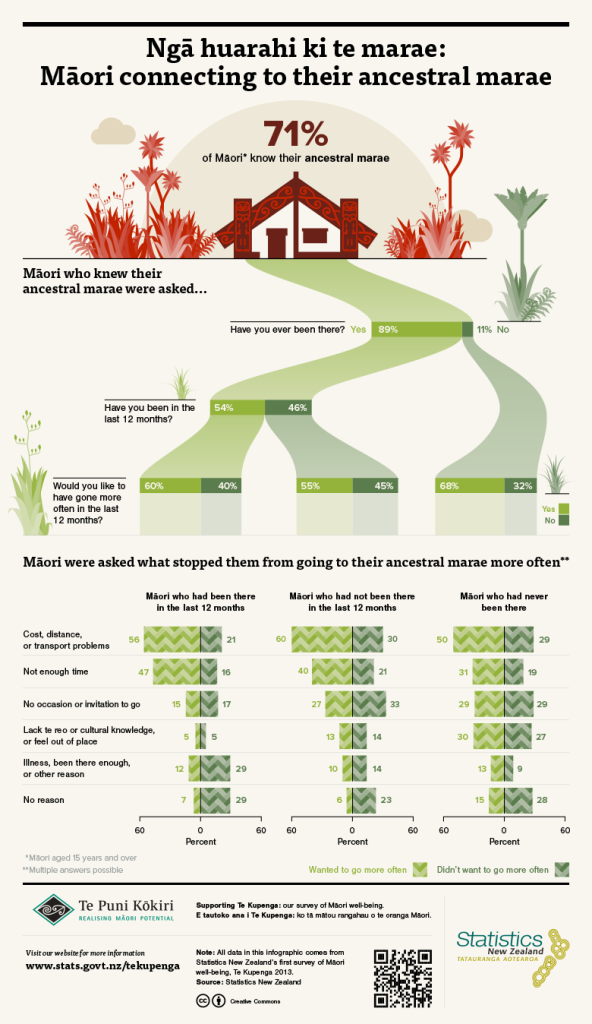Māori need invitation or occasion to visit home marae – study
New Zealand Statistics infographic reveals reasons why Maori do not visit their marae more often.
 No invitation or occasion is the main reason some Māori do not want to go to their ancestral marae more often, a Statistics New Zealand/Tatauranga Aotearoa infographic shows.
No invitation or occasion is the main reason some Māori do not want to go to their ancestral marae more often, a Statistics New Zealand/Tatauranga Aotearoa infographic shows.
Released February 2015 Ngā huarahi ki te marae: Māori connecting to their ancestral marae shows that there is a near balance of Maori who have been to their ancestral marae in the last 12 months and those that have not.
Of the 46 percent who had not been to their ancestral marae in the last 12 months the infographic shows that 45 percent would not have liked to have gone more often.
The main factor for not visiting is there was no invitation or occasion to go. Cost, distance and transport problems were other reasons.
Donna-Lee Biddle, Ngati Pikiao, said her marae, Tapuaeharuru in Rotoiti, is very important to her as it is a way to reflect on lifestyle and strengthen her culture.
“It’s a link to my whanau and my tupuna, it’s a spiritual connection that I have with my iwi and now that I have children, it’s important for them to understand the connection,” she said
Biddle believes the statistics of Māori who would not like to have gone to their marae more often are a sad reflection and she questioned whether the disconnection with marae is a sign of changing cultures.
“There are benefits from being at your marae that I feel these people are missing out on. Your marae is a way for you to connect with whanau, learn about the history of your iwi, and reconnect,” she said.
Jason Renes, Ngai Tūhoe and Rongomaiwahine, regularly visits his marae in Waimana but has not been to his marae in Mahia in two years.
He said that cost and distance is a factor that keeps him from going home to his marae more often.
“It’s easy to think everyone with whakapapa to a marae ought to spend X amount of time at the marae, but if there is a palpable sense of disconnection, words won’t change that.”
Household statistics manager Diane Ramsay said she hopes the infographic will help iwi, hapū, and whānau support people on their journeys to their marae.
Ngā huarahi ki te marae: Māori connecting to their ancestral marae uses information collected in the Te Kupenga 2013 survey of Māori well-being.




